13TH AUGUST 2024 FAQS FREQUENTLY ASKED QUESTIONS ON ORGAN DONATION

Organ donation D.Y.Patil College of Nursing Kadamwadi, Kolhapur
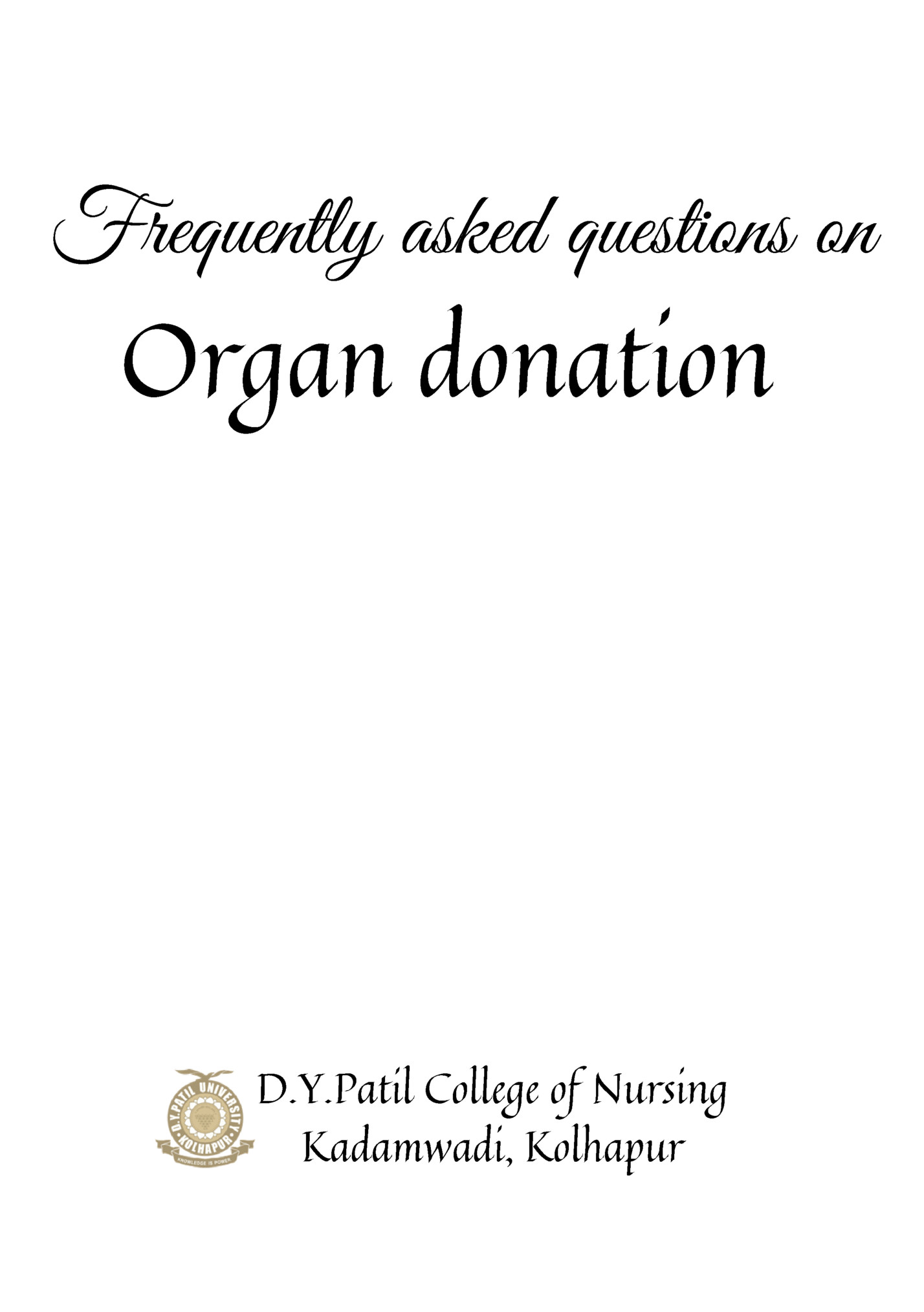
Q 1:What is organ donation ?...............................2 Q 2:What is Tissue donation ?.............................2 Q 3:Which Organs Can Be Donated?.....................3 Q 4:Which TissuesCan Be Donated?......................4 Q 5:What are Types of organ donation ?......................5 Q 6:What is process of Organ Donation?......................5 Q 7:Which is theLaw Governing Organ Donation in India......................5 Q 8:WHAT IS BRAIN DEAD AND ORGAN DONATION ? Q 9: What isProcedures for Brain Stem Death Declaration in India? Q 10: WHAT HAPPENS ONCE A BRAIN STEM DEATH IS DECLARED ? Q 11:HOW LONG CAN AN ORGAN SURVIVE INSIDE AND OUTSIDE THE BODY IN A DECEASED ORGAN DONATION? Q 12:TESTS ESTABLISHING BRAIN STEM DEATH? Q 13:WHAT IS ORGAN ALLOCATION PROCESS IN INDIA ? Q 14: WHAT POTENTIAL ORGAN RECIPIENTS NEED TO KNOW? Q 15: PLEDGING YOUR ORGANS AND BECOMING AN ORGAN DONOR ?
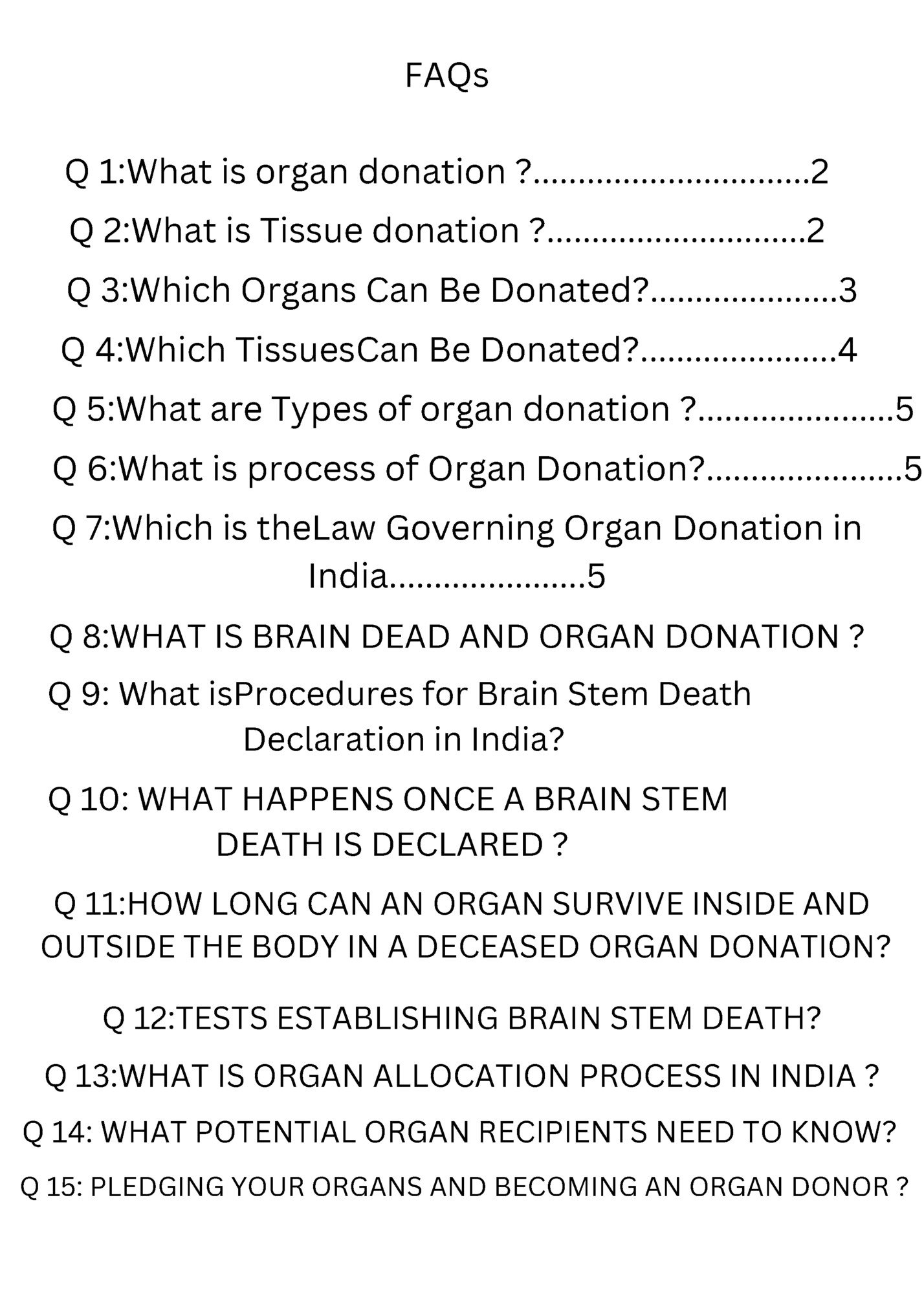
Q 17:GOVERNMENT AGENCIES FOR ORGAN DONATION ? FAQ S

Organ donation is the entire practice of retrieving a human organ from a living or deceased person, who is referredto as a Donor, and transplanting it into a recipient. The recipient will be a patient who is suffering from organ failure and who will not survive unless she/he receives an organ replacement. The process of recovering organs is called Retrieval. What is TissueDonation? Tissue Donation is the process of Retrieving or Procuring tissues from a living or deceased persons, called a Donor,and transplanted into the Recipientwho needs it. Medical Science has made tremendous progress in recent times in the field of organ donation and transplantation, with organdonation from one person capableof saving up to 9 lives and improving the lives of many others. However, due to the prevalence of myths about organ donation, and the lack of awareness aboutthe topic in India, a majority of people do not take up this noble cause for the benefit of others.
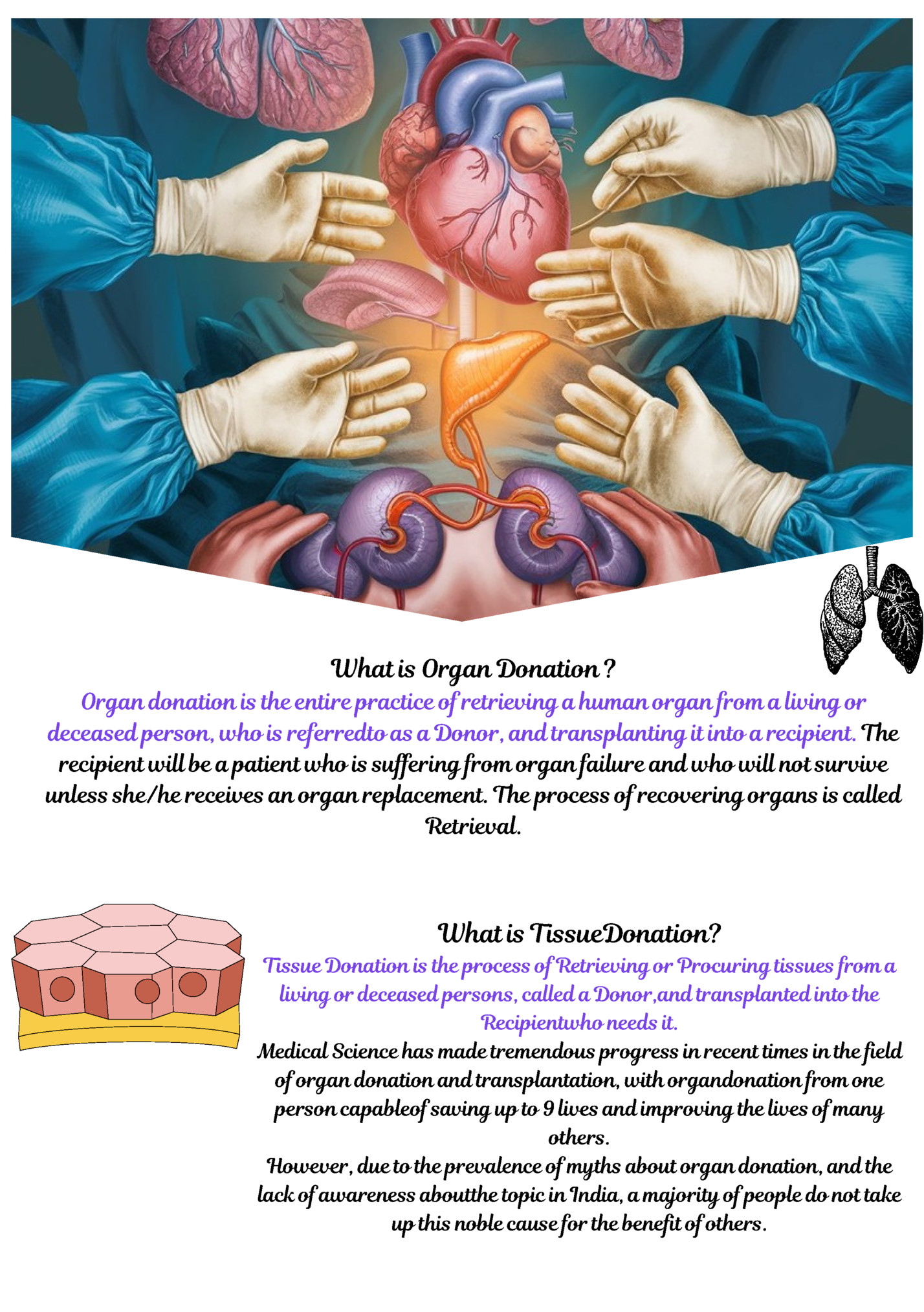
Let’s take a closer look at the different organs that can be donated by a person after death and whilethe person is still alive.There are eightorgans that can be donated and transplanted: 1.Kidneys: Both kidneyscan be donated by a deceased donor.On average the lifespan of a transplanted kidney is around nine years, but it varies from individual to individual. Of all organs in the human body, the demand for kidneys is the highest, and kidneys are the most frequently donated organs. A kidney disease most likely affects both kidneys at the same time. A living donor can easily donate one kidney to someone and function well for the rest of their lives. 1.Liver : The liver is an important organ with primary functions of bile production & excretion; excretion of bilirubin, cholesterol, hormones, and drugs; metabolism of fats, proteins and carbohydrates; enzyme activation; storage of glycogen, vitamins and minerals; synthesis of plasma proteins; blood detoxification and purification. The liver is the only organ in the human body that can grow cells and regenerate. A donated liver from someonewho has died (a deceaseddonor) can further be split into two pieces and transplanted into two different people to save their lives. A living donor can have a portion of her/his liver removed to donate to someone, and the remaining portion will regenerate to almost its full previous size. .Heart: A heart is a muscular organ which pumps blood through the human body. In a person’s life, the heart will beat around2.5 billion times on averageand keep the blood running in the body. After being retrieved from the donor, a heart can survive for 4-6 hours only.

Let’s take a closer look at the different organs that can be donated by a person after death and whilethe person is still alive.There are eightorgans that can be donated and transplanted: Lungs: Single or double-lung transplants can be performed from deceased donors. Additionally, living donorscan donate a single lobe from the lungs, thoughit will not regenerate. Pancreas: A deceaseddonor pancreas can be transplanted into an ailing patient. A living donor can also donate a portion of the pancreas and still retain pancreas functionality. Intestine: After death,a donor can donate their intestine. Althoughquite rare, a living donor can donate a portion of the intestine. In addition to organs,you can also donate tissuessuch as corneas,skin, bones, ligaments, heart valves etc.
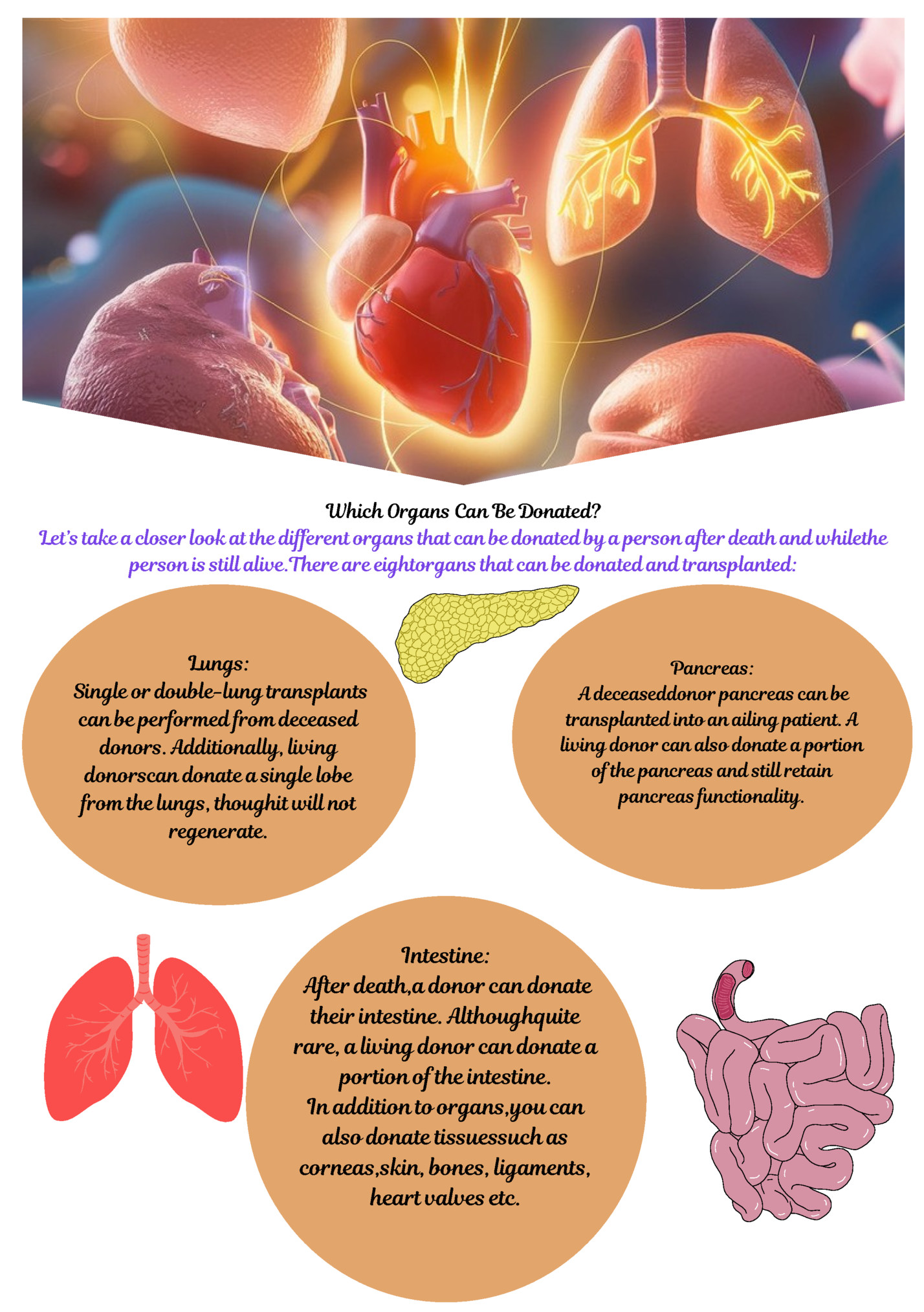
Layers of cells that function togetherto serve a specific purposeare called Tissues. Most Tissues should be donated within 6 hours of the donor’s death. Bones: Bones from deceaseddonors are used to replacebones of recipients whose bones are cancerous. A Bone transplant can be done instead of amputating the cancerous arm Cornea : Cornea donation or eye donation is the most common tissue donation. The Cornea is a transparent covering over the eye. It is also the eye’s primary focusing element. Recipients who suffer from corneal blindness can gain their sight again after a corneal transplant. These patients are those who may have been blinded by an accident, infection or disease. Either the entire Cornea can be transplanted or it can be transplanted in parts. A Corneal Transplant is does not need any anti-rejection drugs in the recipient. Corneas from all ages of recipients are effective as long as the Doctors as they are healthy.
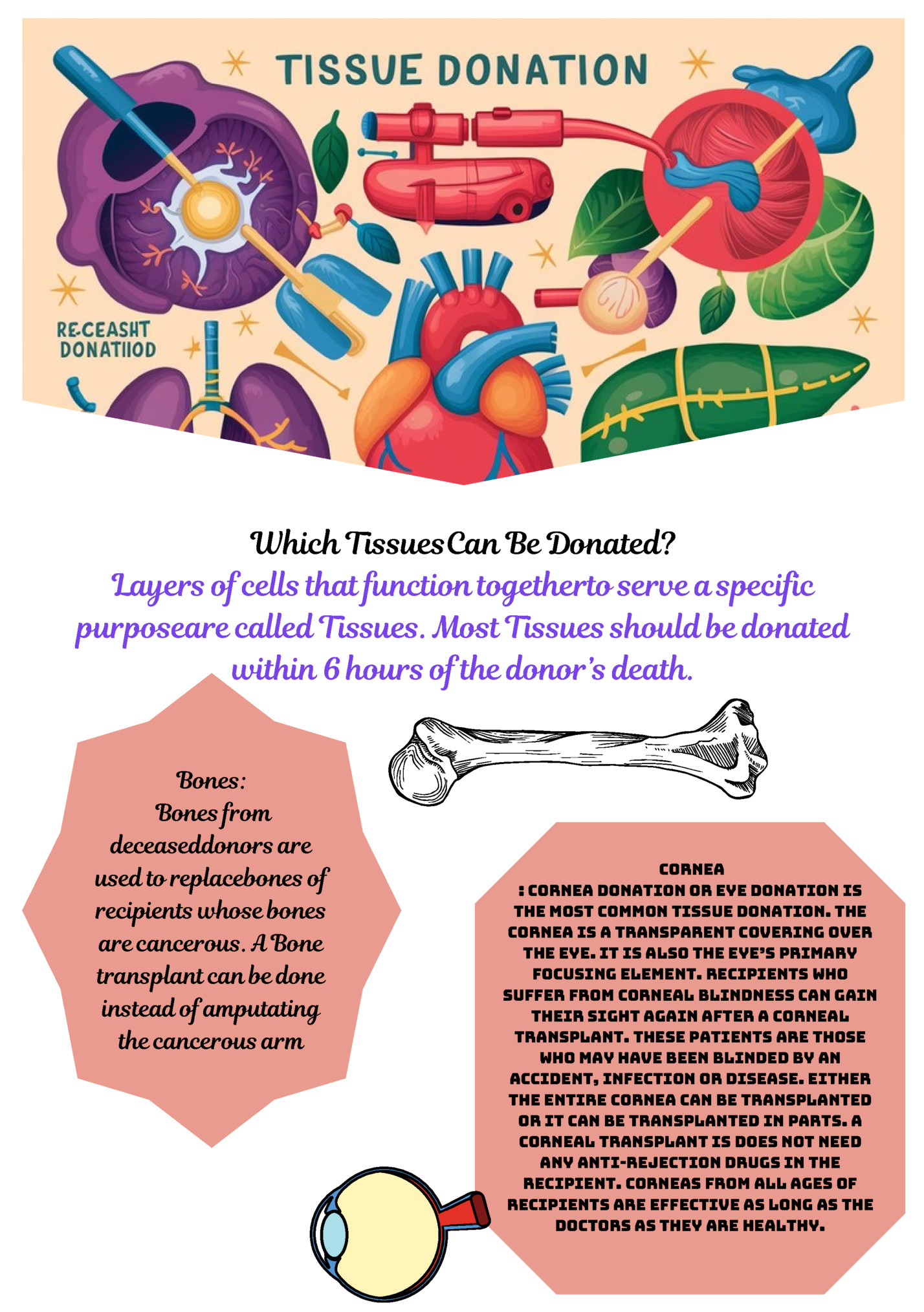
Layers of cells that function togetherto serve a specific purposeare called Tissues. Most Tissues should be donated within 6 hours of the donor’s death. Skin : Skin can be used as graftingfor burn victims,acid attack victimsor for postmastectomy breast reconstruction, amongst other things. .Veins : Donated veins are commonlyused in surgeries for cardiacbypass. Apart from these, othertissues that can be donatedare muscles, tendons,ligaments, cartilage and heart valves.
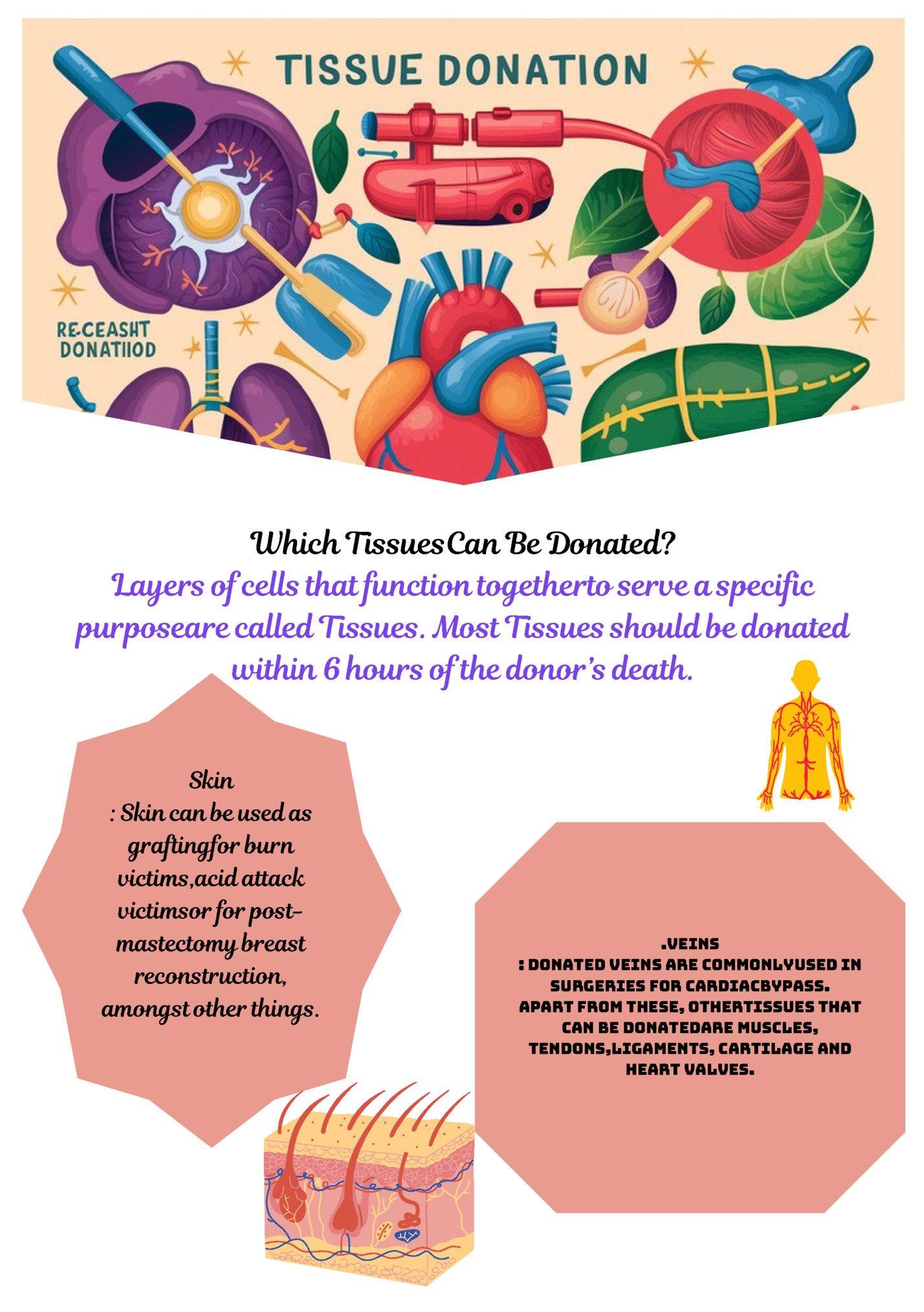
Fleepit Digital © 2021